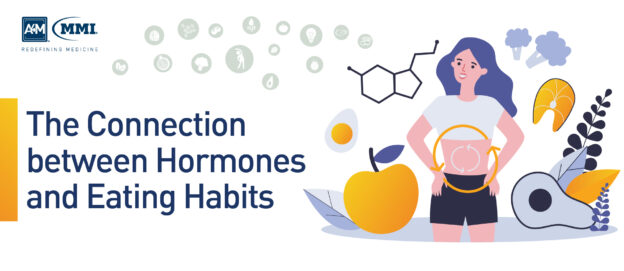While there are over 200 hormones in the body – estrogen, testosterone, cortisol, insulin, leptin, and thyroid hormones are the most commonly known and closely linked to metabolism, fertility, mood, and other vital functions. Changes in hormone production, such as under- or over-production, or interferences in signaling pathways contribute to the development of hormonal imbalances, which can lead to diabetes, weight gain, infertility, and other health concerns if not managed appropriately. Sudden weight fluctuations or changes in energy levels can signal hormonal abnormalities, as can muscle aches and weakness, joint inflammation, and increased temperature sensitivity. There are many possible causes of hormonal imbalances, such as medications, tumors, and underlying health conditions; diet-related hormonal fluctuations, including those spurred by eating disorders, are also prevalent and underscore the connection between the endocrine system and eating patterns.
Hormones and Dietary Habits
Dietary patterns have a significant effect on the production of hormones as well as the proper functioning of their signaling pathways. Energy management is conducted through neural pathways while the hypothalamus and brain stem send neural and endocrine signals to regulate short-term appetite. Food regulation communication relies on mechanoreceptors and chemoreceptors in the gut which are aided by a number of gut hormones and satiety peptides. These include gherlin, known as the “hunger hormone” responsible for initiating food consumption and leptin, which is responsible for adiposity signaling to stop eating. Insulin plays an important role in regulating food consumption via adiposity signals while the hormone obestatin, which is still under scientific investigation, assists with long-term food intake regulation. Finally, satiety peptides such as peptide YY, cholecystokinin, pancreatic polypeptide, amylin, and others play a role in appetite regulation in addition to hormonal signaling.
Dietary Triggers and Beneficial Habits
A healthy diet can help keep hormones in sync while poor dietary habits may wreak havoc within the endocrine system, contributing to hormonal imbalances and long-term health consequences. Overall, the consumption of healthy fats, nuts and seeds, whole fruits and vegetables, as well as quality proteins is beneficial to hormonal health while pesticides, alcohol, and artificial sweeteners in the diet can negatively impact hormone levels. Furthermore, the frequent use of stimulants – such as caffeine – and depressants, excess sodium consumption, and eating processed sugars or genetically modified ingredients can interfere with metabolic processes, harm cardiovascular health, and increase the risk of hormonal repercussions.
Caloric needs are relevant factors to consider as well with female patients being particularly prone to sensitivities to calorie scarcity, which often result in the down-regulation of sex hormone production.
Clinicians interested in expanding their knowledge of hormonal health are invited to join us for the Women’s Hormones course, a 2-week online longitudinal course designed to build clinical confidence in prescribing bio-identical hormone replacement therapy (BHRT) to female patients. The benefit of taking our hormones course online is the opportunity for continuous interaction with faculty and fellow students to enhance the overall learning experience, reinforce expertise, and engage in an education-based community. If you are looking to refine your clinical decision-making skills while taking your BHRT practice to the next level, this course has been curated especially for you!

